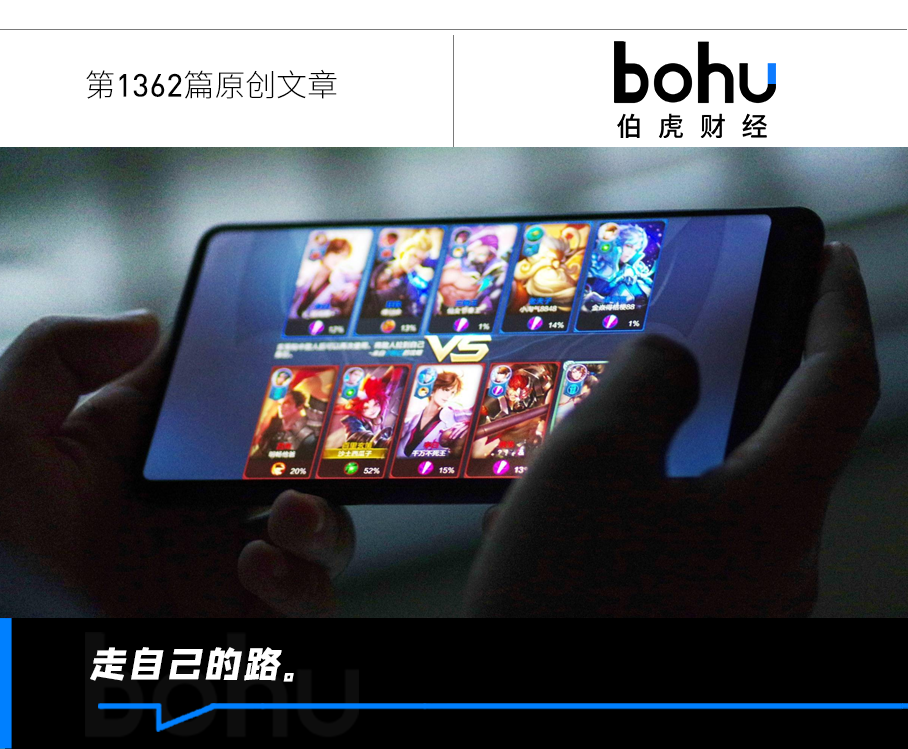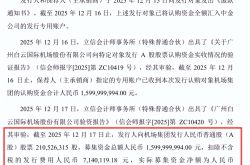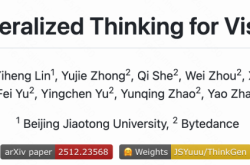Tencent's 'Disenchantment' with Genshin Impact
![]() 08/13 2024
08/13 2024
![]() 530
530

Source | Bohu Finance (bohuFN)
"Why hasn't Tencent created a game product like Genshin Impact?"
In March 2023, Tencent's IEG (Interactive Entertainment Group) department, responsible for game operations, held an employee conference attended by the heads of its four major studios: Timi, Lightspeed & Quantum, Morefun, and Aurora. The inability to produce their own "Genshin Impact" became a common concern throughout Tencent.
Tencent Games posed the question but failed to find the correct answer. It wasn't until 2024 that Tencent suddenly shifted gears and began actively trying to bypass obstacles posed by Genshin Impact and the entire gacha game genre.
At Tencent's annual conference at the end of January this year, the remarks of Ren Yuxin, head of Tencent Games and President of IEG, were noteworthy. He stated that competitive multiplayer games remain the crown jewel and Tencent's core competency, emphasizing the need to "hold onto our core competency and not be swayed by current popular MMO (Massively Multiplayer Online) games or anime-style games."
From not wanting to miss out on the next Genshin Impact to actively returning to its roots, what has Tencent Games experienced in just one year?
01 Anime Games' Cultural Disparity
From late September to the end of 2020, within the first three months of its initial release, Genshin Impact surpassed PUBG Mobile in revenue, second only to Honor of Kings.
Statistics show that since its launch, Genshin Impact has generated over $4.1 billion in global revenue, a figure that has propelled miHoYo into the top ranks of global mobile game revenue.
The success of Genshin Impact not only transformed anime games from a niche market into a popular sector but also caused anxiety for Tencent. A glimpse of this can be seen in Tencent's financial reports.
In 2020, when Genshin Impact was released, Tencent Games was at its peak. While growth in PC games like League of Legends, CrossFire, and Dungeon & Fighter slowed, mobile games like Honor of Kings, Game for Peace, and PUBG Mobile were in their prime, serving as the backbone of the entire sector.
That year, Tencent's online game revenue reached 156.1 billion yuan, an increase of 36% year-on-year, with mobile games accounting for over 90% of this figure. During the same period, the actual sales revenue of the domestic game market increased by 21% year-on-year, with Tencent's growth rate significantly outpacing the industry.
However, due to various internal and external factors, Tencent Games fell into a spiral of deceleration starting from the following year.
Feeling threatened by Genshin Impact, Tencent and others had to re-examine their market strategies and development directions.
"The best way to address anime games is to create good anime games," said Ma Xiaoyi, setting the tone. This sparked an internal "Genshin Impact fever" within Tencent IEG.
To create its own "Genshin Impact," IEG heavily invested in the anime game sector over the past three years. From 2021 to 2023, Tencent aggressively laid out its anime game strategy, developing and publishing a large number of anime games, encompassing various subgenres such as open-world, card, turn-based, simulation management, casual, and shooting games. At the same time, Tencent waved its checkbook, investing in dozens of anime game developers and even briefly considering investing in miHoYo.
In 2021, the former Technical Director and Art Director of miHoYo, He Jia, was recruited by IEG to lead the development of an open-world anime game code-named NXS at Timi Studios. This project was seen as a flagship title targeting Genshin Impact.
Even among the 18 new titles released in 2023, one-third were anime games. Many IEG internal studios were initiating anime and open-world projects, including Honor of Kings: World, which had an investment exceeding 1 billion yuan.
However, Tencent's aggressive push into the anime game sector did not yield significant returns. It fell far short of Genshin Impact and failed to produce a successor to flagship titles like Honor of Kings. Many games shut down within a year due to poor reviews and revenue. As of now, Tencent's NXS and Honor of Kings: World have yet to launch, and the highly anticipated Noah's Heart shut down after just over a year online.
02 The Cooling of Genshin Impact
However, things soon changed. At this year's internal employee conference of Tencent IEG, from Senior Vice President Ma Xiaoyi to other management, few mentioned Genshin Impact, and even its "fellow apprentice" Honkai: Star Rail was presented as a "negative example."
Ma Xiaoyi set the strategic tone for IEG in 2024: explore new avenues while holding onto our core competency. IEG will focus on its strengths and moderately invested niche projects. Management stated at the conference that casual games are growing fastest, and multiplayer competitive games are most valuable. In other words, IEG no longer sees anime games as the best sector for increased investment.
From heavily investing in anime games to aiming to recreate Genshin Impact to no longer adding resources, why has Tencent let go of its obsession?
The answer is that Tencent has found its own methodology.
Firstly, Tencent has finally recognized reality. In the past, the gaming industry seemed to be under the misconception that Genshin Impact drove exponential growth in the anime game market. But last year's story showed that the actual incremental market share gained by Genshin Impact for its competitors was quite limited.
On the one hand, the anime game ceiling is approaching. Over time, the "Genshin Impact shock" is weakening. Since 2023, the domestic anime game fever has shown signs of cooling. While the overall anime game market size increased to 31.7 billion yuan, a 31% increase from the previous year, most anime games are not doing well, with only top games profiting through the Matthew Effect.
According to GameRes, since April 2023, at least 22 mobile games targeting anime fans have been launched, spanning various subgenres such as role-playing, card, tactical, and shooting. However, by January 2024, only four anime games remained in the top 200 of Apple's iOS bestseller list, with most games being fleeting.
Among the quietly declining anime games are key products heavily promoted by major studios. For example, Tencent's self-developed White Night Aurora launched in June last year and briefly reached the 26th position on the bestseller list but fell out of the top 200 within half a year. Another Tencent-invested game, Girls' Frontline 2: Exile, launched by Yostar in December 2023, disappeared from the charts within a month.
In fact, even Genshin Impact has felt the chill of the slowing anime game market.
According to SevenMac data, since April 2023, Genshin Impact's ranking on the iOS free game list has dropped from the top 20 to outside the top 30, recently falling below 50, with a noticeable decrease in new players.
In terms of revenue, according to platforms like Sensor Tower, Genshin Impact earned $1.56 billion in 2020 but only $0.94 billion in 2023, a 40% decline.
On the other hand, the increase in anime game users over the past few years has actually been limited to miHoYo's user base. As netizens put it, "miHoYo has been expanding its own user base, not the anime game user base."
Some also argue that miHoYo's breakthroughs with Genshin Impact and Honkai: Star Rail have not only educated the entire industry but also reshaped users' content consumption habits, turning non-anime game audiences into anime game players.
As the target demographic broadens, today's anime games are difficult to define using old methods, and only vague concepts exist within the industry. Thus, most disputes about "ML," "no males allowed," "no females allowed," etc., stem from debates between anime game fundamentalists and newcomers.
However, it must be acknowledged that anime games, in a broad sense, are no longer exclusive to a small minority but have expanded to the entire Z generation. The creative team behind Let's Go! Cookie Run: Kingdom mentioned in an interview that today's anime game audience is no longer specific to a certain group but has become a generic term, and "the anime game audience is converging with the mainstream audience."
Therefore, when development teams continue to make traditional anime games using old methods, they can only appeal to a small hardcore audience, repeatedly mining the nearly dried-up "small pond" of anime game players. This is why other products cannot poach users from miHoYo's own lake.
To tap into the new anime game audience that highly overlaps with the mainstream, perhaps only high-investment blockbusters involving top studios can raise the genre's entry barrier. However, this is obviously not a cost-effective approach.
Secondly, the launch of Dungeon & Fighter Mobile has given Tencent a new direction: Tencent has its strengths, and making money doesn't necessarily require anime games.
While Tencent has struggled with anime games in the past and present, due in part to market and talent factors, the fundamental reason is that Tencent's strengths in game development and operation do not align well with anime games.
Tencent's refined game methodology over the years has been: PC game derivatives, simplified operations, traffic-driven growth, and social retention. Tencent's flagship mobile games are based on PC games, such as Honor of Kings (based on League of Legends) and Game for Peace (based on PlayerUnknown's Battlegrounds). Many products are direct adaptations of PC games to mobile, such as CrossFire: Legends, QQ Speed, and Dungeon & Fighter Mobile. This approach not only lowers players' cognitive and learning thresholds but also significantly reduces development costs and improves profitability.
For example, at the end of May this year, the highly anticipated Dungeon & Fighter: Origins (Dungeon & Fighter Mobile) launched, giving Tencent a new ace up its sleeve.
Thanks to the vast player base accumulated by the PC version, Dungeon & Fighter Mobile debuted at the top of various mobile app stores and showed strong growth momentum. According to market research firm Sensor Tower, in June 2024, Dungeon & Fighter Mobile surpassed Honor of Kings and Game for Peace to become Tencent's most profitable game.
Under the stimulus of Genshin Impact, Tencent chased the anime game sector for nearly four years without achieving results commensurate with its investments. Now, by retreating to its comfort zone, Tencent has achieved a sense of liberation. The success of Dungeon & Fighter Mobile also reaffirms that "otaku gamers" are inferior to "middle-aged gamers" in terms of Tencent's core competency's strong pay-to-win capabilities.
It is worth mentioning that following the success of Dungeon & Fighter Mobile, Tencent plans to release several key games in the second half of this year, such as Need for Speed: Unbound, World Origin, Delta Force, Star Breaker, and One Piece: Odyssey, none of which focus on anime but rather return to traditional genres like racing, action, shooting, and strategic simulation, most of which are mobile adaptations of existing major IPs.
03 Tencent's Anxiety
While Tencent is no longer obsessed with Genshin Impact, it still faces its own anxieties.
For many years, Tencent Games has primarily relied on investing in game developers to create blockbuster games, such as Honor of Kings and Game for Peace, two universally popular mobile games. The continued success of these games has allowed Tencent to rest on its laurels.
However, despite Tencent's immense success in the gaming business, domestic games are starting to show signs of growth fatigue and a lack of innovation. Tencent's 2023 financial report shows a slight decline in revenue from Honor of Kings, a cornerstone of its gaming income, and a significant decline in Game for Peace.
On January 29, at Tencent's 2023 annual conference, Pony Ma, Tencent's founder, unusually criticized Tencent Games: "Games are our flagship business, and we are supposedly the world's largest gaming company, but it seems like we're resting on our laurels." He further stated that Tencent faced significant challenges in 2023, "New game companies are emerging, and the shift from gameplay to content has been disorienting. Competitors are continuously producing new products, while we feel like we've accomplished nothing. We've also launched new products, but they haven't lived up to expectations."
On the other hand, Pony Ma questioned whether social features could create blockbuster games. "Looking at Tencent's previous hits, Honor of Kings and Game for Peace, they thrived on the social attributes of WeChat and QQ," he said. "But this strategy didn't work for Star Dream Origin, which was launched at the end of last year."
Despite omnipresent marketing, Star Dream Origin was comprehensively overshadowed by Egg Party, except for its initial launch period.
In terms of DAU, revenue rankings, and discussion levels, Star Dream Origin was far inferior to Egg Party. Even on Tencent's stronghold, WeChat, Egg Party led the way.
According to SevenMac data, since its launch, Star Dream Origin's estimated iOS revenue has exceeded $49 million, while Egg Party's estimated revenue has surpassed $74 million during the same period.
Pony Ma once said that Star Dream Origin was not just a game for Tencent but also had a social component, which is inherently our stronghold, so we must go all in. "But Star Dream Origin's failure directly cast doubt on Pony Ma's gaming methodology: Can social features ignite games? If so, why didn't Star Dream Origin ignite? Have Tencent games hit their ceiling?"
"Tencent has never bothered with casual games because they might not earn as much as selling traffic. Mid-core game development and operation are Tencent's forte, exemplified by Game for Peace and Star Dream Origin, but now they're being eroded by NetEase's Egg Party," he added.
As for Dungeon & Fighter Mobile, it's evident that it cannot alleviate Pony Ma's anxiety about Tencent Games.
Clearly, Tencent Games has bypassed Genshin Impact and is back on track thanks to Dungeon & Fighter Mobile. However, aging gameplay mechanics and IP fatigue remain long-term challenges that Tencent must confront head-on.
*The cover image and accompanying illustrations belong to their respective copyright holders. If copyright owners believe their works are inappropriate for public viewing or should not be used free of charge, please contact us promptly, and we will immediately rectify the situation.






